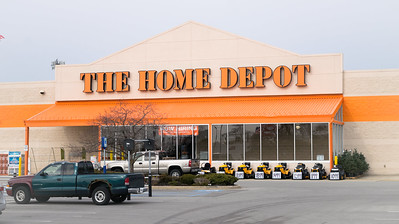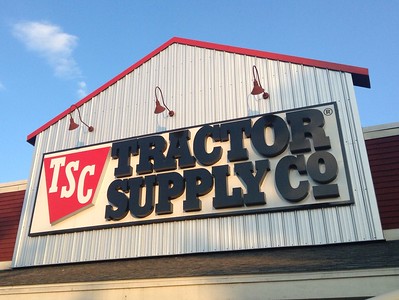
In Jacksonville, propane is like a hidden gem for many homeowners and businesses—it heats our homes, cooks our food, and even powers some of our vehicles. But when it’s time to refill those big propane tanks, things can get a bit confusing. How much will it cost this year? And with all the different places offering refills, how do you pick the right one?
Don’t worry; we’ve got you covered. This article is your go-to guide for understanding everything about refilling your propane tank in Jacksonville in 2024.
We’ll break down the costs in simple terms and give you some handy tips on choosing the best provider, making sure you’re warm and cozy without breaking the bank.
Read this related article: Propane Refill in Miami (Cost 2023, Providers)
Propane Refill Providers in this State
In the city of Jacksonville, there is a dynamic local market for propane refill services to cater to the diverse needs of residents and businesses. These providers range from large, nationally recognized companies to small, locally owned operations.
Key Propane Refill Providers in Jacksonville
Griffis Gas
461 Tresca Road, Jacksonville, FL 32225
Phone: (904) 724-4343
Sharp Energy
4613 Philips Highway, Suite 208B, Jacksonville
Phone: 904-661-7590
D&D Gas Company
7709 Alton Avenue, Jacksonville
Phone: (904) 725-9144
Airgas Store
5225 Phillips Hwy, Jacksonville, FL 32207
Phone: (904) 739-9353
AA Gas
12601 North Main Street, Jacksonville
Comparing Propane Refill Services
When it’s time to choose a propane provider in Jacksonville, there are several key factors you should consider to ensure you’re making the best choice for your needs. Here’s a guide to help you navigate the selection process, weighing the importance of reliability, cost, customer service, and more.
Criteria for Selecting a Provider
- Reliability: The provider should have a consistent track record of dependable service. Look for companies that ensure timely deliveries, especially during peak seasons or in emergencies.
- Pricing: Understand the provider’s pricing structure, including any additional fees for delivery, tank rental, or maintenance. Competitive pricing is important, but be wary of prices that seem too good to be true.
- Customer Service: Good customer service is crucial. Providers should be easy to contact, responsive to inquiries, and proactive in addressing any issues that arise.
- Delivery Options: Flexible delivery options can make a big difference. Some providers offer automatic refills, while others may provide will-call service. Choose what works best for your schedule and propane usage.
- Safety Record: A provider’s commitment to safety is non-negotiable. Research their safety protocols and any history of incidents. Companies should be transparent about their safety measures and emergency procedures.
Local vs. National Providers
Local Providers:
- Pros:
- Personalized service with a community-focused approach.
- Better understanding of local needs and challenges.
- Potentially more flexible with pricing and services.
- Cons:
- Limited service areas may affect delivery times and options.
- Smaller operations could face supply challenges during high demand periods.
National Providers:
- Pros:
- Broader service areas and potentially more robust delivery networks.
- Larger inventory and resources can mean better reliability during peak seasons.
- Often have comprehensive safety and training programs.
- Cons:
- Service may feel less personalized compared to local providers.
- Pricing and policies might be less flexible.
While I can’t browse the internet to provide a current list of recommended providers, here are some general tips on finding a good provider:
- Check Reviews: Websites like Google, Yelp, and the Better Business Bureau can offer insights into a company’s reputation.
- Ask for Recommendations: Neighbors, friends, or local businesses using propane can provide valuable recommendations based on their experiences.
- Compare Services: Make a shortlist of providers and compare their services, pricing, and terms. Don’t hesitate to contact them directly for quotes or additional information.
Remember, the best provider for you will depend on your specific needs, usage patterns, and preferences. Take your time to research and choose a provider that offers the right balance of reliability, cost, and service for you.
Read this related article: Which Propane Tanks Can Be Refilled (How to Identify)
How Much Does Propane Cost in Florida?
As of my last update in April 2024, the average price of propane in this state ranged between $2.20 and $3.25 per gallon for residential customers. However, prices in Florida might be slightly lower on average due to the state’s warmer climate, which typically results in lower heating fuel consumption. Additionally, Florida’s prices can be influenced by its logistics and supply chain factors, including the proximity to major propane supply hubs and ports.
In Jacksonville, just like in any other city, the cost to refill your propane tank can go up and down for a bunch of reasons. Think of it kind of like how the price of fruits and veggies changes with the seasons. Here’s a simple breakdown of what affects propane prices and some tips to keep your costs as low as possible in 2024:
What Makes Propane Prices Change?
- Seasons: Just like ice cream sells for more in the summer, propane can get pricier in the cold months when everyone needs it to stay warm.
- Demand and Supply: If a lot of people need propane at the same time or if there’s a problem getting propane to the stores, prices can go up.
- Delivery Fees: Sometimes, the cost to bring the propane to your house can add a bit more to your bill, especially if you live far from the supplier.
Tips to Save Money on Propane Refills
- Buy in Bulk: If you have the space, getting a lot of propane at once can sometimes get you a discount.
- Sign a Contract: Some companies offer a deal if you agree to buy your propane from them for a certain period.
- Buy at the Right Time: Try to fill up your tank before the cold season hits. Prices usually go up when everyone starts turning on their heaters.
Remember, a little bit of planning and shopping around can make a big difference in how much you spend on propane in Jacksonville in 2024. Keep these tips in mind, and you might just snag a great deal!
Read this related article: Propane Refill at Gas Station: Is It Cheaper?
The Process of Propane Refill
Understanding the propane refill process can be a key step towards ensuring your safety and getting the most out of your propane usage. Here, we break down the process into simple steps and discuss crucial safety measures that need to be considered during a refill or any other location.
Step-by-Step Description of the Propane Refill Process
The actual propane refill process is typically carried out by professionals at a propane refill station, as follows:
- Inspection: The propane tank is first inspected for any signs of damage or wear. This includes checking the tank’s structural integrity, as well as the condition of the valve and overfill protection device (OPD).
- Connect: If the tank passes inspection, it is then connected to the refill system. This is typically done using a hose which is attached to the tank’s valve.
- Refill: Once securely connected, propane is pumped into the tank. This is done under pressure, as propane is stored in its liquid form within the tank.
- Check: As the tank is filled, its weight is monitored to ensure it is not overfilled. Most tanks have an 80% fill limit to allow for expansion of the propane gas due to temperature changes.
- Disconnect and Seal: When the refill is complete, the supply is cut off, the hose is disconnected, and the tank valve is closed and capped.
Safety Measures During the Refill Process
Here are some key safety measures to bear in mind during the refill process:
- Professional Refilling: Always have your propane tank refilled by a trained professional. This process involves high-pressure gas and requires specific knowledge and equipment.
- Wear Protective Gear: Professionals refilling the tank should be wearing appropriate protective gear, including gloves and eye protection.
- No Overfilling: The tank should not be filled beyond its safe limit. As a general rule, tanks should only be filled to 80% of their total capacity to allow for gas expansion.
- Ventilation: Refilling should always be done in a well-ventilated area to prevent the accumulation of propane gas in case of a leak.
By understanding the process and safety measures involved in propane refills, you can ensure a seamless and safe propane supply for your home or business in Jacksonville.
Safety First: Considerations for Propane
When dealing with propane refills, safety should always be the top priority. Propane, while a highly efficient and versatile fuel, can be hazardous if not handled correctly. Being aware of key safety guidelines can prevent accidents and ensure the safe use of this valuable energy resource.
Importance of Safety When Handling Propane
The first step towards safe propane handling is understanding its properties. Propane is a flammable liquefied gas under pressure. This means it has the potential to cause fire or explosion if mishandled, or if the container is damaged.
Furthermore, inhaling propane can cause nausea, headaches, or even asphyxiation in severe cases. Therefore, it’s essential to handle propane with care and respect.
Safety Guidelines During the Refill Process
During the propane refill process, certain safety guidelines should be strictly followed. These include:
- Only qualified personnel should refill propane tanks. This task should never be performed by someone who is not trained and certified.
- Propane tanks should be inspected for damage or leaks before refilling.
- The area should be well-ventilated during the refill process to prevent propane buildup in the air.
- Never overfill a propane tank. In Jacksonville, and in all hot climates, propane tanks should only be filled to about 80% of their capacity to allow for expansion.
Transporting and Storing Propane Tanks Safely After Refill
Once your propane tank has been refilled, it’s crucial to transport and store it properly to prevent accidents:
- When transporting a propane tank, make sure it’s secured and upright to prevent it from falling or rolling.
- Store propane tanks outdoors in an upright position. Never store propane tanks in enclosed areas like basements, garages, or in your vehicle.
- Avoid exposing propane tanks to extreme temperatures and keep them away from open flames or ignition sources.
By following these safety tips for propane refills in Jacksonville, FL, you can ensure a safer environment for yourself and those around you while enjoying the benefits of this versatile fuel.
To Make a Conclusion
Whether you’re a homeowner heating your property, a business owner operating propane-powered equipment, or a BBQ enthusiast gearing up for the grilling season, the need for reliable propane refill services is universal. With an array of providers in Jacksonville, finding one that suits your specific needs—be it in terms of pricing, delivery options, or customer service—should be a well-informed decision.
Remember, safety remains paramount in handling propane—during refill, transport, storage, and usage. A little caution can go a long way in preventing any mishaps, ensuring you reap the benefits of propane without compromising safety.
In this city, with its burgeoning market for propane refill services, you are well-positioned to meet all your propane needs efficiently. Armed with the knowledge from this guide, you can confidently navigate the local propane scene, ensuring your home or business stays fueled up all year round.

Mike is an experienced propane technician with over 15 years of professional experience in the field. He has dedicated his career to helping customers with their propane needs, from installation to maintenance and repair. Together with Jeremy, he co-founded this website to provide useful information and guidance to customers seeking reliable propane services.



